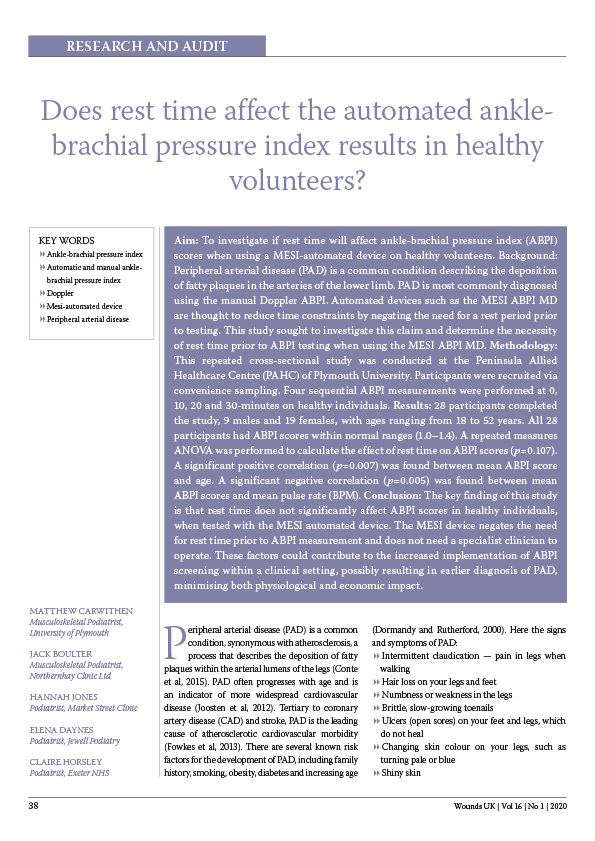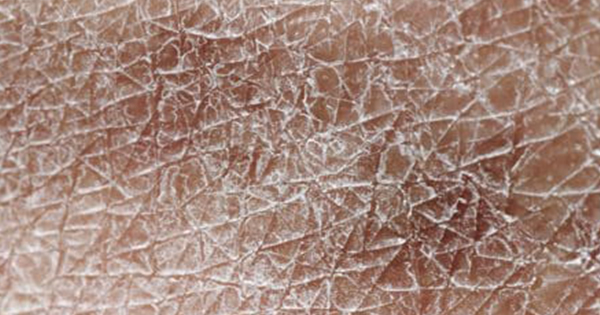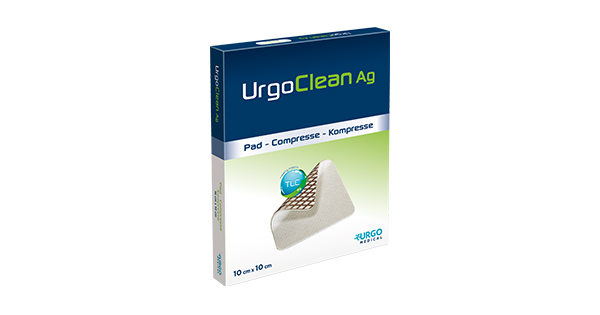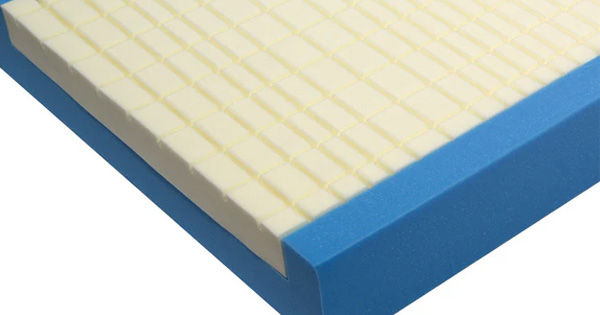Aim: To investigate if rest time will affect ankle-brachial pressure index (ABPI) scores when using a MESI-automated device on healthy volunteers. Background: Peripheral arterial disease (PAD) is a common condition describing the deposition of fatty plaques in the arteries of the lower limb. PAD is most commonly diagnosed using the manual Doppler ABPI. Automated devices such as the MESI ABPI MD are thought to reduce time constraints by negating the need for a rest period prior to testing. This study sought to investigate this claim and determine the necessity of rest time prior to ABPI testing when using the MESI ABPI MD. Methodology: This repeated cross-sectional study was conducted at the Peninsula Allied Healthcare Centre (PAHC) of Plymouth University. Participants were recruited via convenience sampling. Four sequential ABPI measurements were performed at 0, 10, 20 and 30-minutes on healthy individuals. Results: 28 participants completed the study, 9 males and 19 females, with ages ranging from 18 to 52 years. All 28 participants had ABPI scores within normal ranges (1.0–1.4). A repeated measures ANOVA was performed to calculate the effect of rest time on ABPI scores (p=0.107). A significant positive correlation (p=0.007) was found between mean ABPI score and age. A significant negative correlation (p=0.005) was found between mean ABPI scores and mean pulse rate (BPM). Conclusion: The key finding of this study is that rest time does not significantly affect ABPI scores in healthy individuals, when tested with the MESI automated device. The MESI device negates the need for rest time prior to ABPI measurement and does not need a specialist clinician to operate. These factors could contribute to the increased implementation of ABPI screening within a clinical setting, possibly resulting in earlier diagnosis of PAD, minimising both physiological and economic impact.







